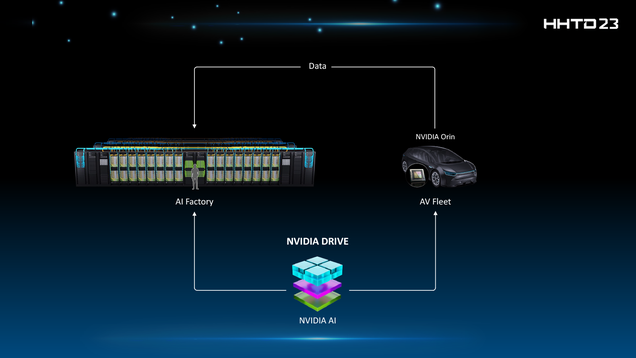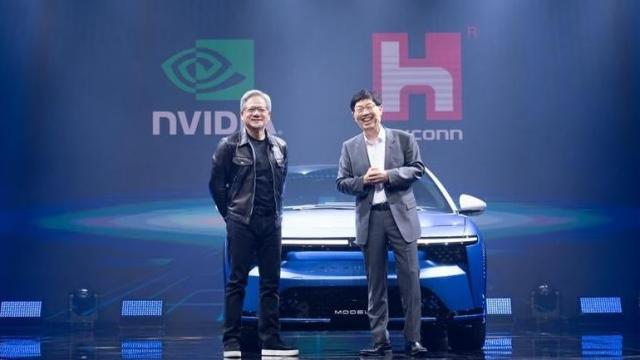Nvidia CEO Jensen Huang and Foxconn CEO Young Liu unveiled AI factories at the fourth annual Hon Hai Tech Day Tuesday. These data centres will not only build Foxconn’s newest electric vehicles but also design the software that powers the fleet of self-driving cars.
AI factories will utilise Nvidia GPU computing infrastructure that is specially built for processing, reigning and transforming vast amounts of data in AI models and tokens. The chips used in the process will be Nvidia’s latest GH200 Grace Hopper Superchip.
“This is a factory that takes data input, and produces intelligence as an output,” said Huang onstage with Liu beside him. “It’s an AI factory. And in the future, every industry, every company, will have AI factories.”

The AI factory will develop software for cars like the Foxtron Model B, which Foxconn showcased behind Huang and Liu during the announcement. As the cars are driven, data from the fleet is delivered back to the AI factory and run through a neural network large language model. The model will then build updates to the self-driving software, and send them out to the entire fleet.
“There will be smart factories that build cars, there will be smart factories that build AIs, and these two factories will be compliments of each other,” said Huang.
Foxconn, the world’s largest contract electronics maker says it is transitioning to a platform solution company targeting three areas: smart cities, smart manufacturing, and smart EVs. Nvidia says the concept of AI factories are scalable and could be applied to these industries as well.
Huang says Nvidia is also in a transition, from a graphics chip maker into a data centre scale computing company, claiming “most of the computers of the future that are interesting are going to be data centre scaled.”
On Tuesday, the US government curbed advanced chip companies from exporting their products to China. Nvidia said in a filing the licensing requirement “may impact the Company’s ability to complete development of products in a timely manner.” The A100, A800, H100, H800 and other chips will be affected by the regulation, and they’ll require licensing for exports to other countries such as Saudi Arabia, UAE and Vietnam. Nvidia does not anticipate the restrictions will have a meaningful near-term impact.
